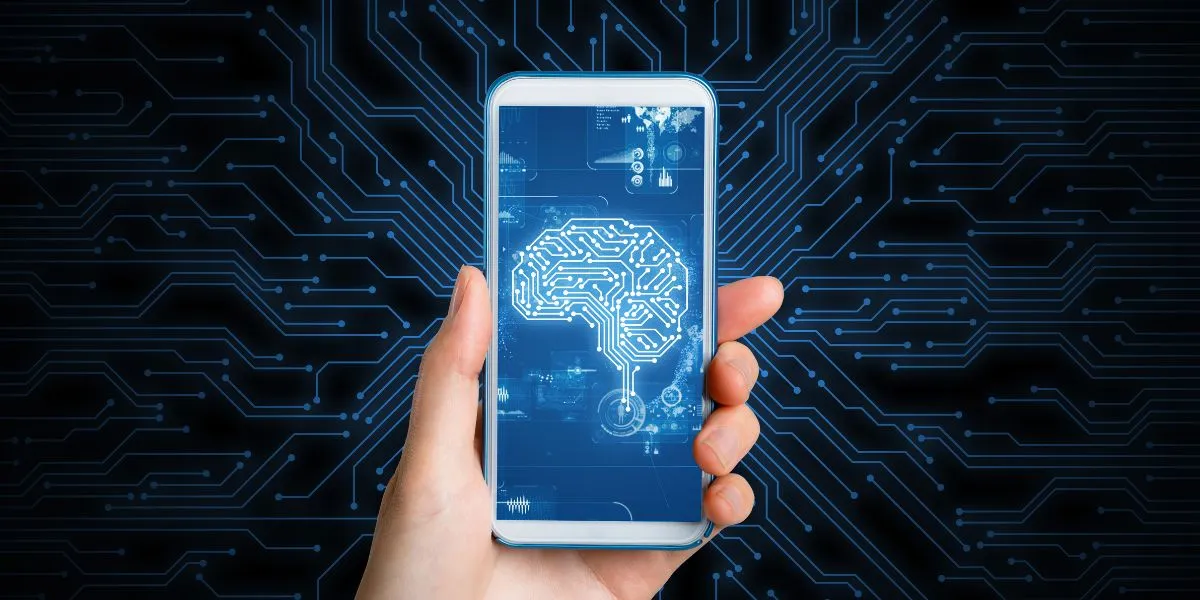“Can a device that fits in your pocket be both a technological marvel and a source of unease? As AI pushes the boundaries of smartphone capabilities, we must ask ourselves—at what cost? With AI’s Impact on Smartphones pushing the boundaries of innovation, where performance is prioritized over personal security?”
Artificial Intelligence has reached an important turning point with the evolution of smartphones. From optimizing performance to new and unique features, AI changes the way we interact with our devices. Let’s look at the two-edged nature of how AI will influence smartphones on two major counts: optimization of performance and potential concerns.
AI’s Impact on Smartphones: A Double-Edged Sword:

1. The Promise of AI in Smartphone Performance
AI significantly enhances smartphone performance with a great deal of pitch-in. For instance, AI-powered features developed and made available by vendors like Qualcomm include adaptive battery management that can extend battery life up to 30% by learning the user’s habits and making power adjustments.
For example, AI-driven features such as adaptive battery and power management algorithms do their job of dynamic resource allocation based on usage patterns, hence improving battery longevity and bringing down energy consumption.
Apple just announced the iPhone 16, shifting focus to software and AI innovation. Is this a game-changer, or is Apple just catching up? Let’s discuss the impact of AI on the future of smartphones.
Read morehttps://t.co/kOTFg2rYtf
#iPhone16 #Apple #Tech #rocketparrotnews pic.twitter.com/B4xCuCLeEi
— Rocketparrot News (@RocketparrotN) September 3, 2024
Additionally, AI-driven predictive text and voice assistants use NLP enhancement to be more accurate and intuitive. Softprodigy indicated that AI’s Impact on smartphones improved the rate of voice recognition accuracy by over 95%, which makes device interaction much smoother and faster.
2. Optimization Problems and Challenges in AI
However, AI does stand to develop a great many optimization problems. Optimization problems in artificial intelligence involve the pursuit and selection of the ultimate choice from a set of choices that might be computationally intensive and complex.
Latest update:Microsoft (MSFT) Stock Update: Analyst Ratings and AI Growth Insights
Softprodigy ascertains that these problems at times occur in different scenarios, such as improving the efficiency of an algorithm or balancing the use of computational resources. For instance, accuracy overutilization of computational resources is very hard to balance in developing optimized machine learning models for smartphone applications.
3. AI’s Risks and Ethical Concerns
With AI’s Impact on Smartphones playing a greater role in smartphones, heavy concerns about privacy and security will continue to be raised. According to a report from Gartner, by 2024, 65% of users will be concerned about their data being collected and used by AI systems. Sometimes, the information collected for improved performance can be exploited or accessed without consent from the user, which might lead to possible breaches of privacy.

Elon Musk has identified biased decision-making by AI systems and increased inequality as some potential dangers of AI. According to Techcrunch, Musk’s concerns include the potential for AI systems to escape human control, with serious side effects on society and individual freedoms. TechCrunch.
4. Addressing the Concerns
The problems can be overcome by introducing robust data protection and guiding ethics. Transparency of algorithms of AI and encryption of user data with proper handling practices would help. Efficiency in algorithms and reduction of computational demands would help in performance-privacy balance.
For instance, iOS 17 introduces new features offering better control over personal information by controlling the access of data to third-party apps.
Conclusion
AI’s impact on smartphones acts like a two-edged sword: while it does warrant quite remarkable performance improvement and innovative features, it also raises a very important question for privacy and security, not to mention ethical considerations.
While we enjoy the level of advancement AI can give us, we should be aware of the potential risks that lie ahead and strive to find solutions that will help preserve user interests while boosting device capabilities.



